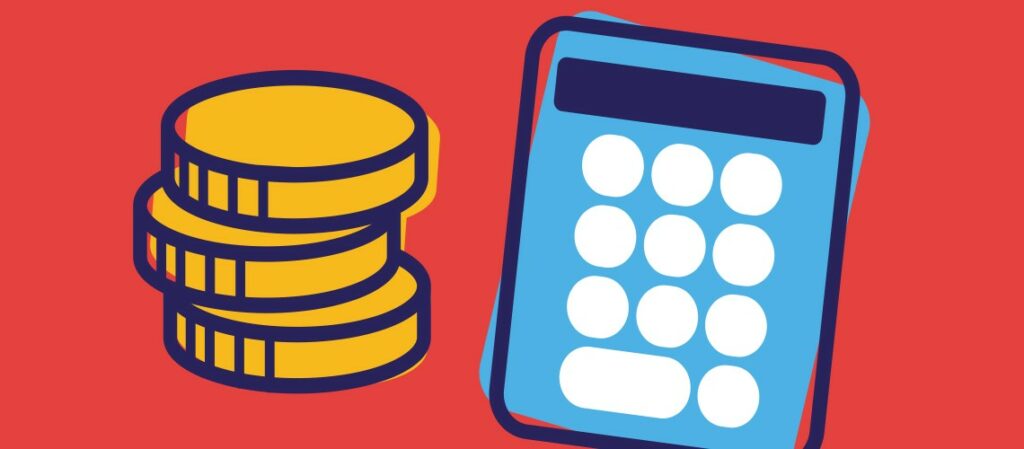Money matters お金の問題?
句動詞(Phrasal verbs)※は、英語を母国語としない学習者の悩みの種です。句動詞は一般的に慣用句であり、文脈によっていくつかの意味を持つことがあります。日常会話でネイティブスピーカーの英語を理解するためには、句動詞を使いこなすことが必要となります。
現在は、インフレと不況で、社会全体が物価の上昇に敏感になり、生活費のことが常に話題となり、多くの人が苦労している時期です。今回は、日常英会話で使われるフレーズの中で、そんな今の情勢の中よく耳にする、便利なフレーズをご紹介します。
メディアでよく取り上げられる「Cost of living生活費」は、多くの人にとって、その個人レベルでの影響について考える際の話題の種です。このネガティブな影響を表現する5つの句動詞と、その他の一般的な「お金」にまつわる英語表現を3つご紹介します。
※ 句動詞(Phrasal verbs) 「動詞+副詞」または「動詞(+副詞)+前置詞」によって構成され、特別な意味を生じ、まとまって1つの 動詞のように機能する定型のフレーズ
1.We just about get by.
何とかやりくりしています。
“To get by” (as in “we get by”) suggests that a couple (or family) have enough money to pay for everyday expenses. However, it has a negative feel to it, as if to suggest that although the bills are covered, there is little (if any) leftover money for luxury purchases or for savings.
By adding “just about”, it highlights this extreme situation. It suggests that we can afford essential purchases, but nothing more.
2.The weekly shop now sets me back £150.
毎週の買い物で、150ポンドかかるようになりました。
This colloquial expression is used as an alternative to “it costs me £150”.
The verb “cost” is neutral with no indication of the speaker’s perception of value.
“set me back £150” adds the nuance that this an undesirable amount of money to spend: either it feels too expensive OR it’s an unforeseen expense that you regrettably have to pay, such as repairs to a faulty car.
“the weekly shop” refers to the weekly trip to the supermarket to buy food.
3.I’m eating into my savings more than I want to.
貯金を必要以上に切り崩している。
This expression has the similar nuance of regret that “sets me back” has. But the focus is on what spare cash (or savings) we have and how we reluctantly have to starting using it to pay for things.
4.We need to rein in our expenses/spending.
経費/支出を抑制する必要があります。
“to rein sth in” is to get something back under control, so that the situation becomes manageable.
In this context, the budget planner (head of family or accountant of a business) is looking at how much money is being spent and realises that cuts in spending need to be made. Otherwise, financial difficulties could become a reality.
5.How the other half live! They continue to rake it in.
住む世界が違う人達はどう暮らしているのか!彼らは荒稼ぎを続けています。
When ordinary people either criticise or envy the substantial earnings of others (often when the perception is that most people are struggling financially), we can use this expression.
“to rake” is a horticultural word and one way to memorise the idiom is to imagine an abundant harvest with more crops than one person could possibly need. “it” refers to money (as if somehow an abundant crop), and so we are saying that someone is earning a lot of money.
“the other half” refers, in this context, to rich people, from the perspective of people who don’t consider themselves rich.

その他、困難な状況を知らせる表現にはこのようなものもあります。
6.Money is tight at the moment. 今は経済的に厳しいです。
This means that there is not enough money and that this situation is causing problems to manage.
7.We barely have enough to make ends meet. 生活するのがやっとの状態です。
This expression is similar to “we just about get by”.
8.Everything these days costs a fortune. 最近は何でも高くついて…
“to cost a fortune” is to say that something is perceived to be very expensive.
To say that “everything” costs a fortune is an exaggeration, but is a type of hyperbole that is common in daily conversation to express frustration at the lack of control over price increases.
PS Englishでは、ロンドン・イギリスだけでなく、世界中に拠点を置く日本人の皆様を対象に、オンラインで英会話レッスンを提供しています。より自然な英語を話せるように、ネイティブスピーカーの講師がマンツーマンでレッスンを行います。
ネイティブのようなナチュラルな英語を話したい!本場のイギリス英語を学びたい!という方は是非こちらから無料コンサルテーションをお申込みください。
一般英語だけでなく、ビジネス英語、IELTS・ケンブリッジ検定対策、お子様向けレッスンも行っています。
また、履歴書や論文などの添削サービスも提供していますので、お気軽にご相談ください。
無料コンサルテーションでは、校長ピーター自らが、皆様の英語力を診断後、目標に合わせたおススメの講師をお選びします。
また、当校ではYouTubeで日本語英語を自然なイギリス英語に変えるヒントを発信中!是非チャンネル登録してくださいね。

